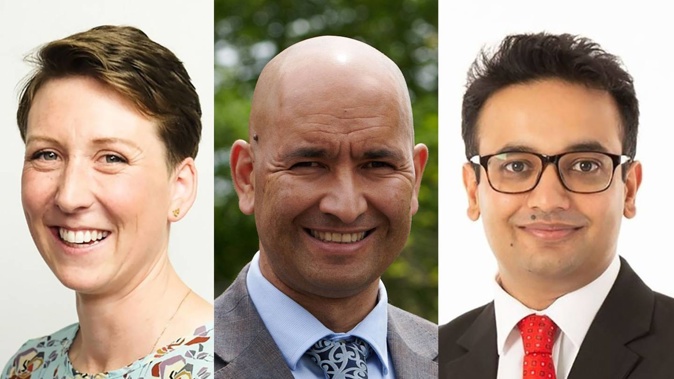
National’s candidate in the the Hamilton West by-election, Tama Potaka, admitted in a debate that a youth offending policy, similar to the one his party announced this week, had only stopped 15 per cent of youth from reoffending.
This week Potaka and National leader Christopher Luxon announced the party would create Young Offender Military Academies where offenders aged 15 to 17 can be sent for up to 12 months.
Potaka defended the policy in a debate on TVNZ’s Q + A saying a similar policy from the last National government had seen 15 per cent of people not reoffend, and a drop in serious violent offences.
“Fifteen per cent of people who went to MAC, the military academies under the National Government, actually didn’t reoffend,” Potaka said.
When asked by moderator Jack Tame, whether this meant 85 per cent did re-offend, Potaka said that many of the reoffenders had switched from serious violent offences.
“50 per cent no serious violent offending and that is what Labour is soft on,” he said.
Debate was dominated by local reflections on national issues like crime and the cost of living.
But Tame also tried to get candidates to challenge their party lines.
Potaka spoke of indexing the tax thresholds as a solution to the country’s inflation woes, but he would not commit support to National’s more unpopular tax policy: removing the top tax bracket.
Potaka said people need “some tax relief in the form of inflation indexing”.
- Boot camps a ‘cliche’, says former National minister Chester Borrows
- Peter Gluckman: National's boot camps are "unlikely to work"
- National plans to send young offenders to army bootcamp
- 'Turn the seat blue': National Party announces Hamilton West byelection candidate
“And that top tax rate, don’t forget that,” Tame interjected. Potaka did not acknowledge the interjection and finished the debate without commenting on National’s policy to repeal the 39 per cent top rate.
Labour’s candidate Georgie Dansey was challenged on how she might challenge the Labour Government as part of a section in which each candidate from National, Labour and Act were asked how they might differ from their party lines.
Dansey acknowledged the “cost of living, the issues with housing” and said she wanted “Labour to do a lot more”.
She said she would not be “ambushing anyone”, but she would bang on Andrew Little’s door for Hamilton constituents.
Dansey was pressed to defend her party’s response to cost of living pressures.
“Visit any supermarket in Hamilton and you’ll see prices are just getting outrageous,” she said, saying her party was “targeting relief at elderly and low income earners”.
Act’s James McDowall would not commit to scrapping the Te Huia train service between Auckland and Hamilton, something National has said it would do.
“The intention would be to look at a bit of a cost benefit on this and find alternatives and there have been other private sector institutions out there,” McDowall said, adding that a Public-Private Partnership might be a suitable alternative.
“It’s not something I’d commit to scrapping straight away,” McDowall said.
Gaurav Sharma, the ex-Labour MP whose resignation triggered the byelection, needled McDowall for not having a position on Te Huia.
“So a sitting member of Parliament has not made up their mind about a transportation option in Hamilton,” Sharma said, noting that he supported the train.
“It’s a great service, we need to build on it,” Sharma said.
Sharma focused his attacks on crime in Hamilton and the cost of living. He said taking GST off fresh fruit and vegetables might be an idea for tackling the cost of living - a policy currently backed by Te Pāti Māori.
The candidates touched on some broader, national issues.
Potaka was also asked what he thought of the medium-density residential standards, the housing rules that allow developers to build more and taller housing in our biggest cities. The rules were the result of a National proposal that was then passed with support from Labour.
The rules have riled some people who are unhappy with more housing being built in their neighbourhoods. This has led to speculation National or another party may weaken the rules after the election. National’s likely coalition partner, Act, opposed the reforms.
Potaka acknowledged there were “some challenges” with the rules, but said they had “bipartisan support”.
“There are some challenges with it but there has been bipartisan support for that,” Potaka said.
“There’s definitely, in our view, bipartisan support for that,” he said, before adding that the implementation of the rules would have to be carefully managed.
Take your Radio, Podcasts and Music with you









